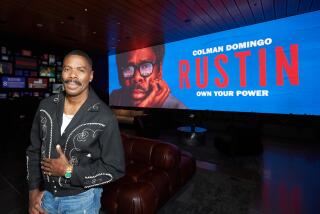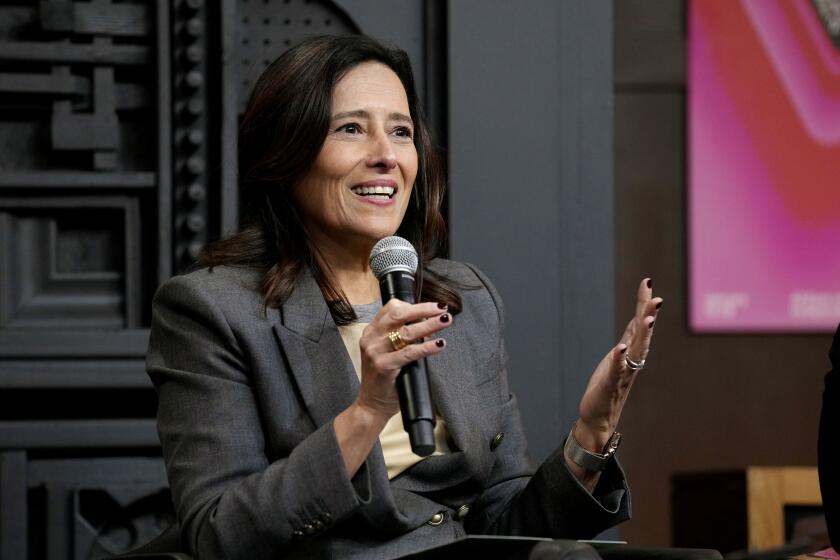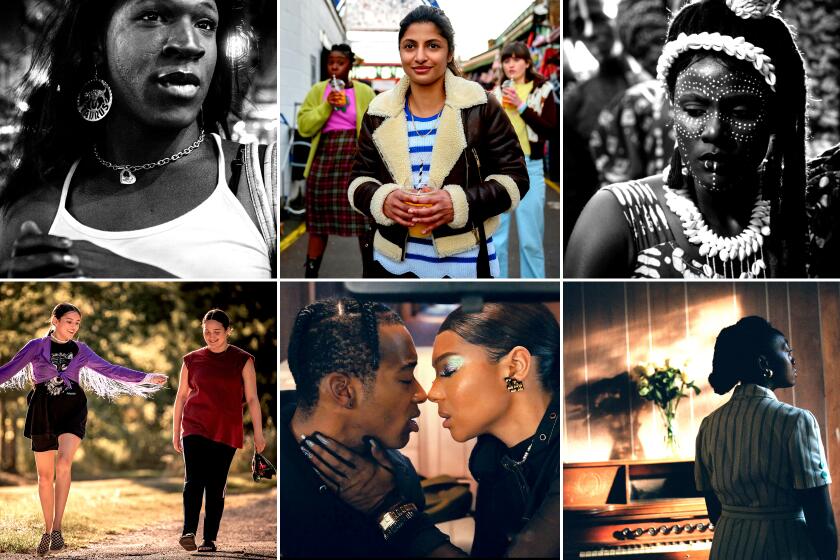Tessa Thompson wants to ask the ‘big questions’ at Sundance

PARK CITY, Utah — Labeled as a conversation on “The Transcendence of Narrative,” Sunday afternoon’s Los Angeles Times panel at the Audible Speakeasy at the Sundance Film Festival took on a more open, free-flowing feel, while covering all the new platforms and modes of storytelling available to creators.
The panel included Justin Simien, writer and director of the horror-comedy “Bad Hair,” Colman Domingo, actor in road-trip dramedy “Zola,” and Tessa Thompson, actress and executive producer on the period romantic drama “Sylvie’s Love.”
Simien and Thompson previously worked together on Simien’s debut feature, “Dear White People,” while Domingo and Thompson were both a part of Ava DuVernay’s “Selma.” These connection helped foster a warmth and feeling of mutual understanding that ran throughout the conversation.
Domingo spoke about the importance of becoming more deeply involved with projects to bring new stories and new voices into the world, saying, “We realized that it’s not enough to just want to have the idea and to tell the story and tell a story that typically may not get the noise that it could. But it’s important for us to become producers as well and make sure the work is out there.”
Thompson talked about how recently she has been thinking a lot about how her movies make audiences feel, saying “I think about the future and I’m like, ‘If I made a film that was set even a skosh in the future, like 25 years or something, would I want there to be single use plastic? Would I want there to be guns?’ Like do I have the responsibility not to show the world just as it is, but as it should be? I don’t know. It’s something I think about… And maybe that sounds saccharine, but I just think we’re in a time where we need to ask big questions and we also need tenderness.”
Simien picked up the idea, saying, “I tend to make things that leave people feeling really [messed up] at the end of them. So I’m kind of on the different tip because to me, I think that there’s room for all of it. I do a television show [‘Dear White People’] that’s sort of pinpointing all of the painful secret racist experiences that we’re enduring, but feel like we can’t talk about. But then I go home and I totally … watch the ‘Housewives.’ I watch ‘The Circle’ on Netflix and other things that I’m embarrassed to say.
“Because I think it’s a mix of both,” Simien said. “One of the things I love about a movie is when it sends me out into the lobby with just something stuck in my throat, that I just can’t figure out about that movie and I have to talk it out and have to work it out at home. I like art that sort of stays with me.”
More to Read
Only good movies
Get the Indie Focus newsletter, Mark Olsen's weekly guide to the world of cinema.
You may occasionally receive promotional content from the Los Angeles Times.











